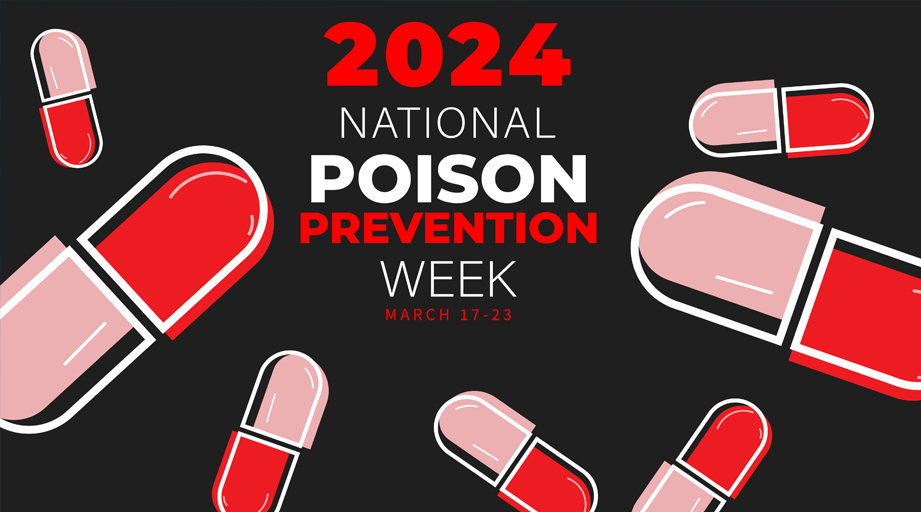
March 17-23 is National Poison Prevention Week — and that's a great time to reflect on the important work that pharmacists do at the nation's network of poison centers.

“Most of our staff are pharmacists,” said James Leonard, director of clinical services for the Maryland Poison Center and associate professor at the University of Maryland School of Pharmacy.
In 2022, the most recent year for which full data are available, the Maryland Poison Center managed more than 42,000 human exposure cases.
“A lot of what we do is provide the right-now treatment information ... about this poisoning and what might go wrong, what can I do prevent it from getting worse, what can I do if it gets worse,” Leonard said. “Poison centers are really the front end of that.”
U.S. poison centers responded to more than 2 million human exposure cases in 2022, according to America’s Poison Centers, which manages the National Poison Data System and serves as the national membership organization for the centers. Analgesics accounted for the largest share of exposure cases, followed by household cleaning products, antidepressants, cosmetics and personal care products, and antihistamines.
Poison centers are also fielding a growing number of calls about semaglutide and other glucagon-like peptide-1 receptor agonists, said Stephanie Hon, director of the Georgia Poison Center and president of the American Board of Applied Toxicology.
“The most common call that we’re getting ... is therapeutic errors. So, they’re either injecting too much accidentally or they are injecting it too close together,” Hon said.
She said poison centers in other states have reported cases of severe hypoglycemia related to compounded semaglutide products that were found to contain insulin.
“So we’ve started a monitoring program at our poison center just recently where we will be asking users where they got the product from — was it a compounding pharmacy, was it a retail brick-and-mortal pharmacy — what are they using it for, just so that we can continue to track and monitor,” she said.
About a quarter of the exposure cases reported by poison centers in 2022 originated from healthcare facilities. The remainder of the calls came from the home setting — and Hon said that’s where poison center staff do some of their most satisfying work.
“Parents, especially, are always so amazed and so shocked when we tell them, ‘I’m going to walk you through this, I’m going to provide the reassurance, I’m going to tell you what to do at home. You don’t need to go to the emergency room,’” Hon said. “And they feel that sense of relief, they feel that sense of being included in this process.”
In addition to answering the Poison Help Line (800-222-1222), pharmacists at poison centers conduct critical surveillance, epidemiology, research, and community outreach activities.
Leonard credited the Illinois Poison Center with identifying early signals of a 2018 outbreak of serious bleeding among people who had used synthetic cannabinoid products that were contaminated with the rodenticide brodifacoum. During the outbreak, the Illinois Department of Health designated the Illinois Poison Center as the referral point for questions about clinical management of the bleeding.
Poison centers also had a leading role in identifying a 2019 outbreak of vaping-associated lung injury, largely related to tetrahydrocannabinol-containing products.
More recently, Leonard said, poison centers have been collecting and examining surveillance data on the accidental ingestion of cannabis-containing edibles.
“Whether it’s unintentional overuse or small children getting into it, we’re helping the states to describe and try to figure out what happens and what factors are associated with these unintentional exposures,” Leonard said. “Maybe it’s an adult who gets too much because they thought the dose was the entire cookie instead of a tenth of it and ends up in the hospital.”
Leonard said adults have gotten into serious trouble after consuming cannabis edibles.
“We’ve had patients receive alteplase for stroke when they didn’t have a stroke. They were just very, very high,” he said.
Poison centers also provide critical surveillance data about the ongoing national opioid epidemic, including the identification of overdose clusters that have indicated the presence of deadly fentanyl analogues in communities.
Hon said the Georgia Poison Center does more than watch for signals of new opioid problems — for seven years, the center has partnered with Grady Memorial Hospital to operate a buprenorphine clinic.
“We see anywhere from 500 to 1,000 patients a year,” Hon said. She noted that the recent elimination of the federal X-waiver has created an exciting opportunity for her pharmacists to prescribe medications and expand their work at the clinic.
“We are starting, soon, a collaborative practice within the clinic with pharmacists and physicians,” Hon said. “We should have that set up by the end of the year.”
Hon and Leonard both described their work as rewarding and fulfilling — and they urged pharmacists everywhere to reach out to their poison center about drug exposure questions.
“It doesn’t take very long, it’s free, it’s confidential,” Leonard said. “You’re talking to an expert who’s a colleague, who speaks the language, and they can offer advice.”








